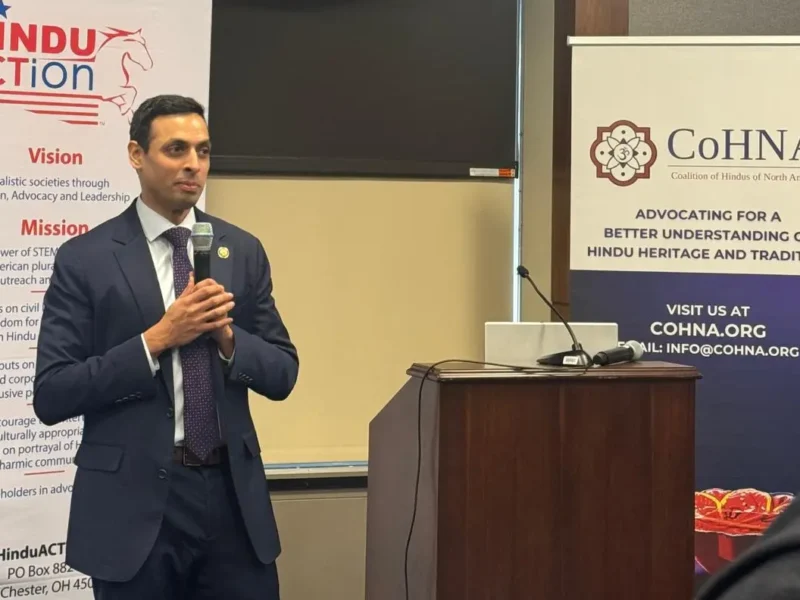
Federal Judge Stops Deportation Of Student Krish Lal Isserdasani
India-West News Desk
MADISON, WI — A federal judge has reinstated the F-1 visa status of Krish Lal Isserdasani, a 21-year-old Indian student at the University of Wisconsin-Madison, ruling that the U.S. Department of Homeland Security violated due process by revoking it without proper justification or notice.
Judge William Conley, in a sharply worded April 16 decision, found that immigration authorities lacked legal grounds to terminate Isserdasani’s visa and failed to follow their own procedures. By April 16, Isserdasani’s status had been restored, allowing him to remain in the country and resume classes just in time to graduate on May 10.
Isserdasani, a final-year computer engineering student, had received a sudden notice from UW-Madison’s International Student Services at the beginning of April stating that his student status was terminated. The message, citing a criminal records check, warned he would have to leave the country by May 2 — eight days before his scheduled commencement.
No prior communication from immigration authorities was given, and the termination came with no opportunity to appeal, clarify, or respond.
Court documents revealed that the decision stemmed from a November 2024 incident, when Isserdasani was arrested for misdemeanor disorderly conduct after a verbal altercation between two groups outside a bar. The Dane County District Attorney chose not to file charges, and Isserdasani was never summoned to court. He believed the matter was behind him.
But despite the absence of charges or conviction, ICE and DHS appeared to use the arrest as justification for terminating his status.
Judge Conley rejected that reasoning, writing in his ruling that the termination “lacked legal justification under the applicable immigration regulations.” He noted Isserdasani had not engaged in unauthorized employment, misrepresentation, or any other visa violations.
“Given the amount of Isserdasani’s educational expenses and potential losses from having to leave the United States without obtaining his degree, the court concludes that Isserdasani credibly demonstrates that he faces irreparable harm,” Conley wrote.
The financial and emotional toll has been steep. According to the court filing, Isserdasani and his family have spent about $240,000 on his education. If forced to leave, he would have forfeited $17,500 in tuition for the spring semester and been liable for four months of housing he could no longer occupy.
More urgently, he said the abrupt visa loss left him sleepless and afraid to leave his apartment, fearing arrest or deportation at any moment.
“This student at UW who’s just studying, living his life as best he can, being a good guy, not doing anything wrong, can just have his whole life and future ripped away from him for nothing,” said Veronica Sustic, an immigration attorney with Lotfi Legal LLC, who represented Isserdasani to WKOW/ABC. “That on its own is terrifying,” she noted.



